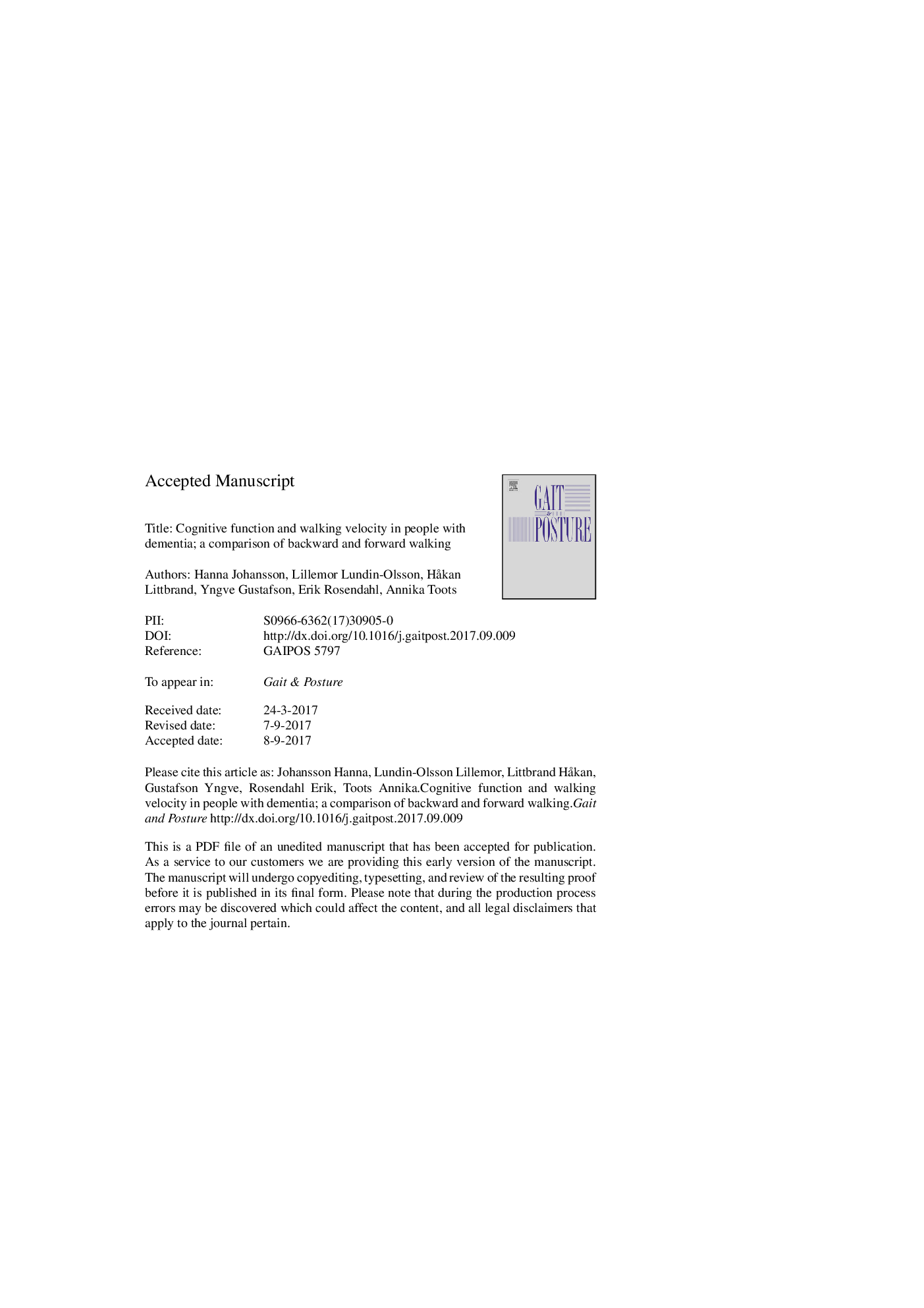| Article ID | Journal | Published Year | Pages | File Type |
|---|---|---|---|---|
| 5707657 | Gait & Posture | 2017 | 22 Pages |
Abstract
How forward and backward walking, both central to everyday life, relate to cognition are relatively unexplored in people with dementia. This study aimed to investigate if forward and backward walking velocity respectively, associated with global cognition and executive function in people with dementia, and whether the association differed according to walking aid use or dementia type. Using a cross-sectional design, 161 participants (77% women), a mean Mini-Mental State Examination (MMSE) score of 15, and mean age of 85.5 years and living in nursing homes were included. Self-paced forward walking (FW) and backward walking (BW) velocity over 2.4 m was measured. Global cognitive outcome measurements included MMSE and Alzheimer Disease Assessment Scale â Cognitive subscale (ADAS-Cog). Executive function was measured using Verbal Fluency (VF). In comprehensively adjusted multivariate linear regression analyses, FW was independently associated with VF (p = 0.001), but not MMSE (p = 0.126) or ADAS-Cog (p = 0.818). BW was independently associated with VF (p = 0.043) and MMSE (p = 0.022), but not ADAS-Cog (p = 0.519). Interaction analyses showed that the association between BW velocity and executive function were stronger in participants who walked without a walking aid. No associations differed according to dementia type. In conclusion, executive function appears important to walking velocity, both forward and backward, in people with dementia with mild to moderately severe cognitive impairment. Global cognitive function was associated with backward walking only, perhaps due to it being more challenging. The association between BW velocity and executive function differed according to use of walking aids, which appeared to attenuate the association.
Related Topics
Health Sciences
Medicine and Dentistry
Orthopedics, Sports Medicine and Rehabilitation
Authors
Hanna Johansson, Lillemor Lundin-Olsson, HÃ¥kan Littbrand, Yngve Gustafson, Erik Rosendahl, Annika Toots,
